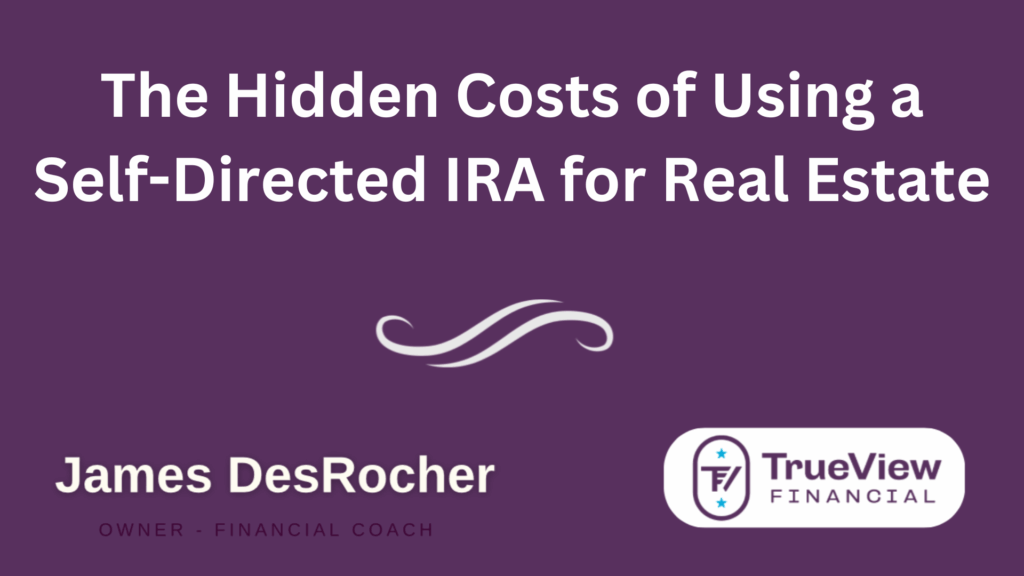
Self-directed IRAs have been gaining attention – especially from real estate investors looking to grow retirement savings with alternative assets. On the surface, it might seem like a smart move: use IRA dollars to buy real estate and watch it appreciate tax-deferred.
But here’s what most people don’t realize: using a self-directed IRA for real estate often means giving up the very tax benefits that make real estate such a powerful wealth-building tool in the first place.
What Is a Self-Directed IRA?
A self-directed IRA is a type of retirement account that allows you to invest in a broader range of assets – such as real estate, private placements, or cryptocurrency – beyond traditional stocks and bonds.
You still receive the tax-deferred or tax-free treatment (depending on whether it’s traditional or Roth), but you’re subject to strict IRS rules and limitations.
Where It Falls Short—Especially with Real Estate:
- No Depreciation Deductions
One of the biggest benefits of owning real estate outside of an IRA is the ability to deduct depreciation -a non-cash expense that significantly offsets taxable income. In a self-directed IRA, you lose that benefit entirely because the income is already tax-deferred. - No 1031 Exchanges
Want to defer capital gains by selling one property and rolling into another? You can’t. 1031 exchanges aren’t allowed inside an IRA. - Higher Complexity and Costs
These accounts come with more fees, tighter rules, and a high risk of prohibited transactions – which can trigger taxes and penalties. - Limited Control
You can’t use or personally benefit from the property in any way. That means no managing the property yourself, no renting to family members, and no hands-on improvements. Everything must go through a custodian.
A Better Alternative?
If you’re drawn to real estate for its income, tax advantages, and long-term growth, consider investing outside of your IRA.
Using after-tax dollars allows you to:
✅ Claim depreciation and expense write-offs
✅ Use leverage and deduct interest
✅ Execute 1031 exchanges
✅ Maintain full control over the property
✅ Keep retirement accounts focused on tax-inefficient, liquid assets (like fixed income, REITs, or equities)
The Bottom Line:
Just because you can invest in real estate through a self-directed IRA doesn’t mean you should. For many investors, it’s a tax trap in disguise.
If you’re considering real estate as part of your wealth strategy, let’s talk about how to do it the right way – so you don’t miss out on the tax benefits you’ve earned.
Have real estate questions? Let’s schedule a time to walk through the best structure for your goals.
– Jim DesRocher
*Guardian and its subsidiaries do not issue or advise with regard to real estate or mortgages. By providing this content Park Avenue Securities LLC and your financial representative are not undertaking to provide investment advice or make a recommendation for a specific individual or situation, or to otherwise act in a fiduciary capacity. 8367671.1 09/2027
This material is intended for general use. By providing this content Park Avenue Securities LLC and your financial representative are not undertaking to provide investment advice or make a recommendation for a specific individual or situation, or to otherwise act in a fiduciary capacity.